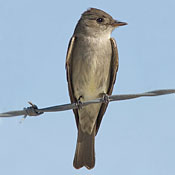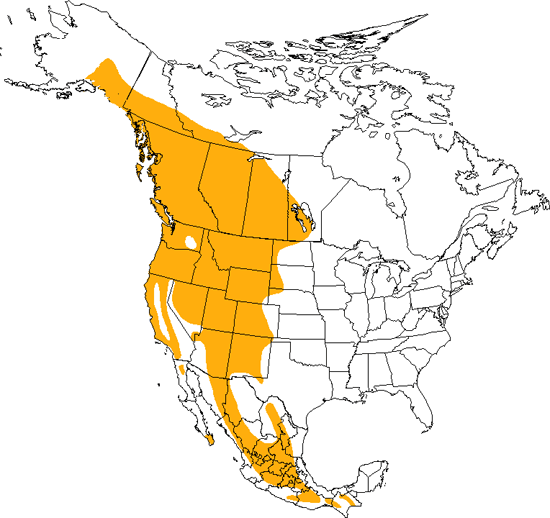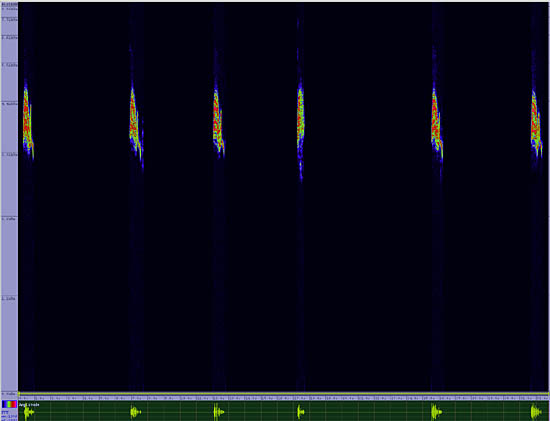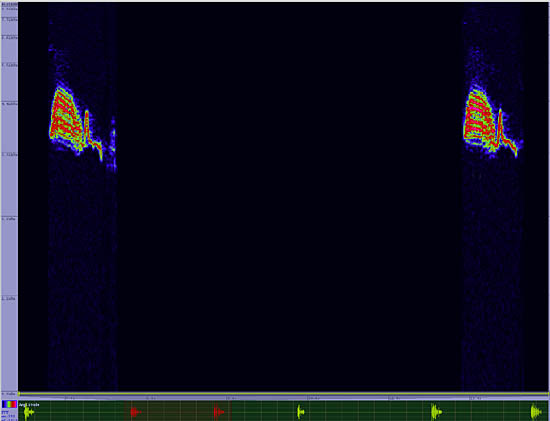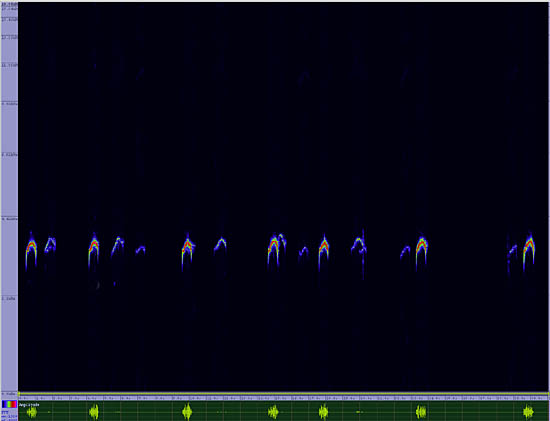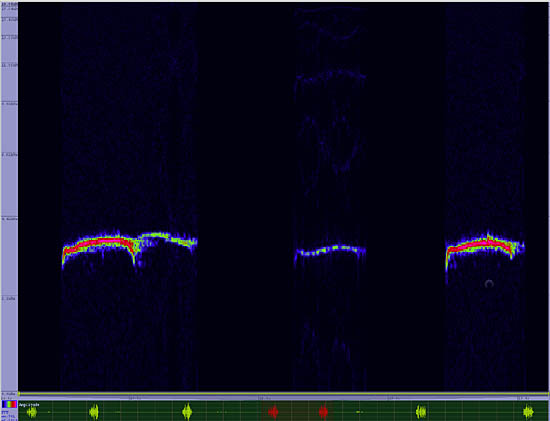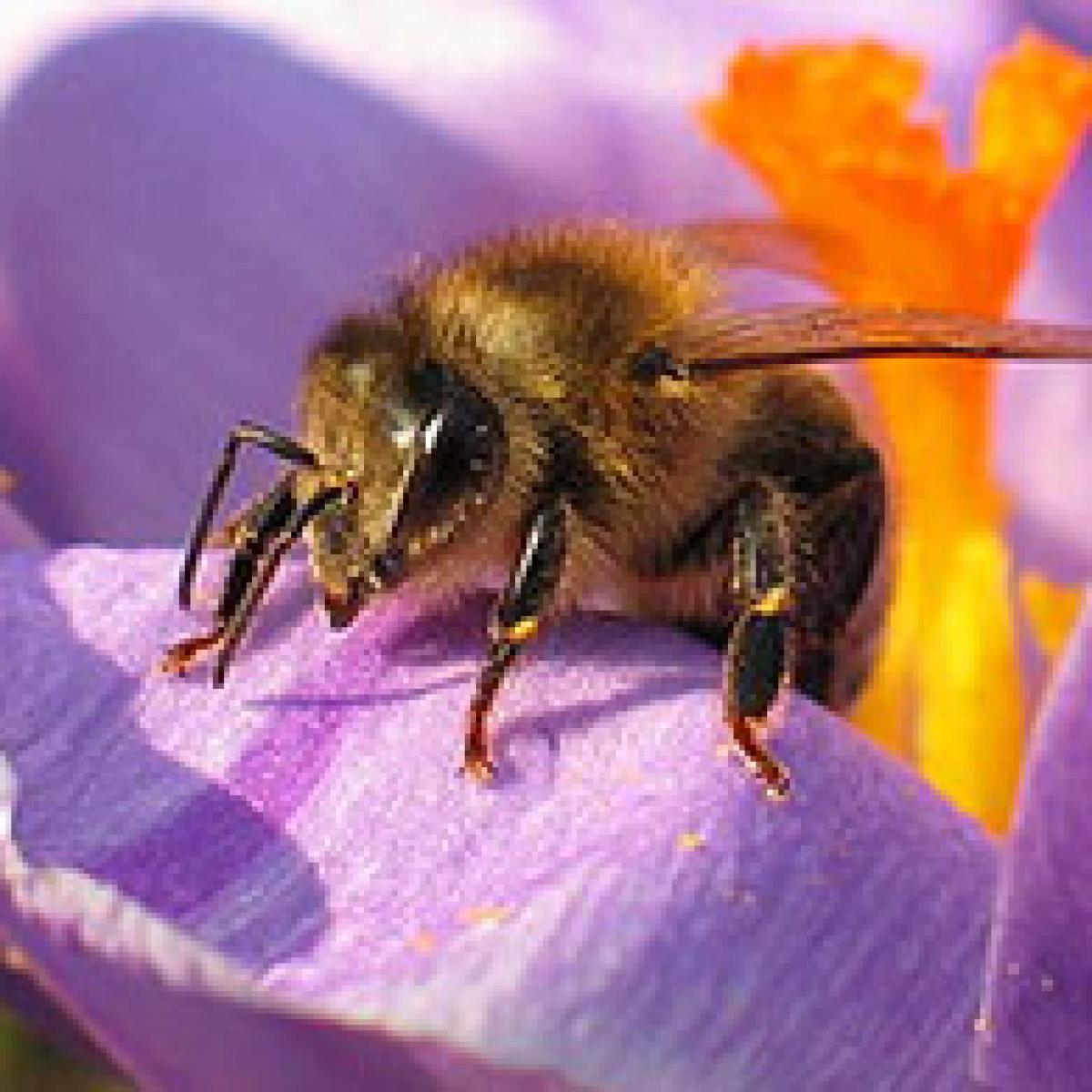Western Wood-Pewee
Contopus sordidulus

Perching
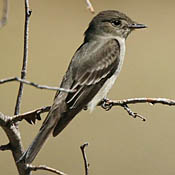
Length: 6 in. (16 cm )
Conspicuously sitting on the tip of an open branch or the top of a dead tree, this flycatcher is an integral part of riparian habitats and open pine-oak woodlands throughout the west. It catches insects in flight. The nest is a deep cup placed toward the tip of a high branch, and it is made of lichens and plant fibers tied together with spider webbing. This species winters in northwestern South America.
The four-digit banding code is WEWP.
Bibliographic details:
- Article: Western Wood-Pewee
- Author(s): Dr. Biology
- Publisher: Arizona State University School of Life Sciences Ask A Biologist
- Site name: ASU - Ask A Biologist
- Date published: 13 Jul, 2017
- Date accessed: 3 August, 2025
- Link: https://askabiologist.asu.edu/activities/bird/western-wood-pewee
APA Style
Dr. Biology. (Thu, 07/13/2017 - 15:38). Western Wood-Pewee. ASU - Ask A Biologist. Retrieved from https://askabiologist.asu.edu/activities/bird/western-wood-pewee
Chicago Manual of Style
Dr. Biology. "Western Wood-Pewee". ASU - Ask A Biologist. 13 Jul 2017. https://askabiologist.asu.edu/activities/bird/western-wood-pewee
MLA 2017 Style
Dr. Biology. "Western Wood-Pewee". ASU - Ask A Biologist. 13 Jul 2017. ASU - Ask A Biologist, Web. https://askabiologist.asu.edu/activities/bird/western-wood-pewee
Be Part of
Ask A Biologist
By volunteering, or simply sending us feedback on the site. Scientists, teachers, writers, illustrators, and translators are all important to the program. If you are interested in helping with the website we have a Volunteers page to get the process started.



